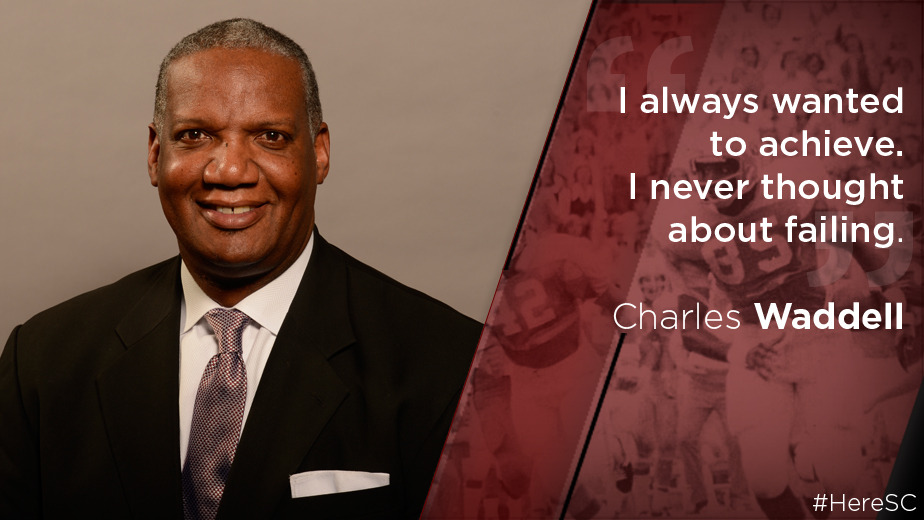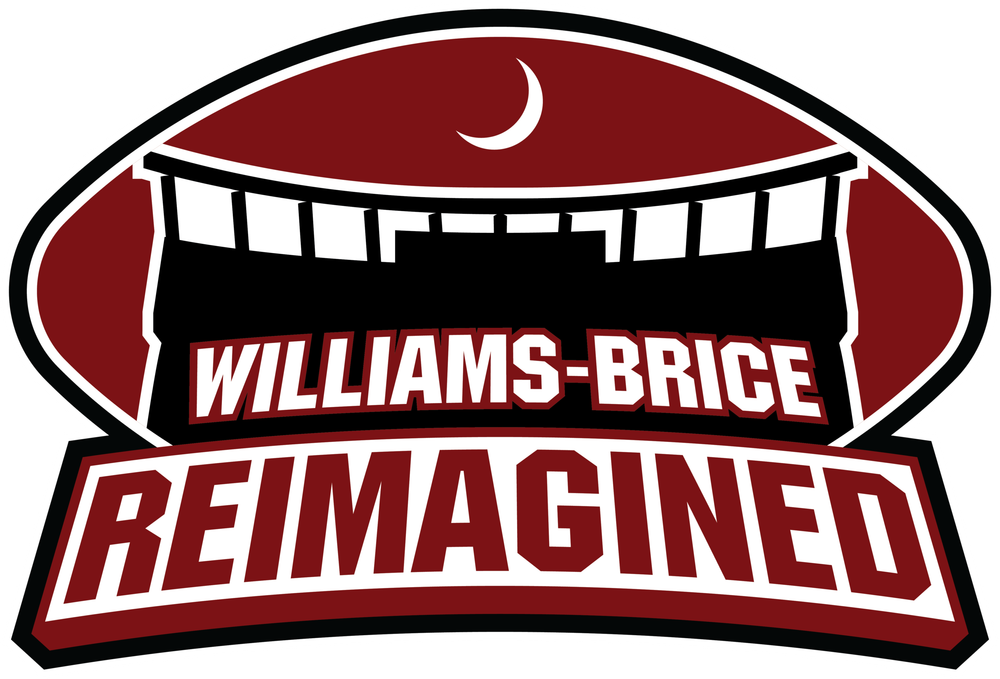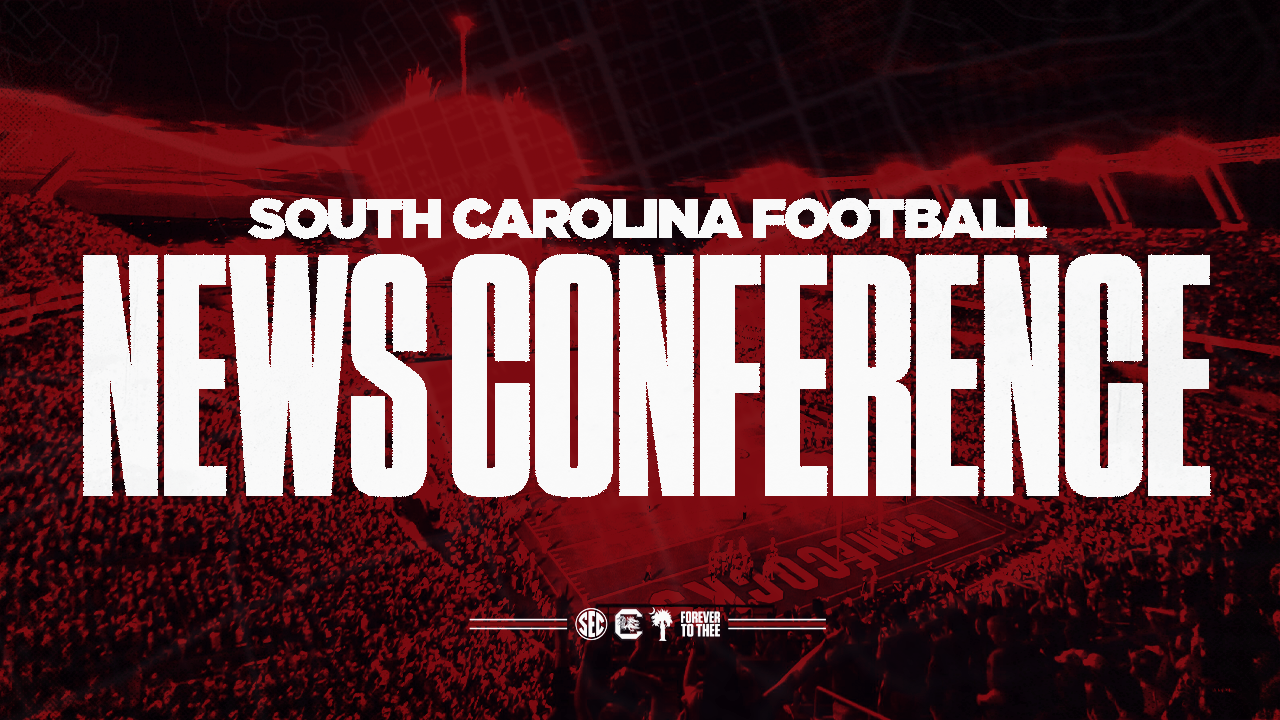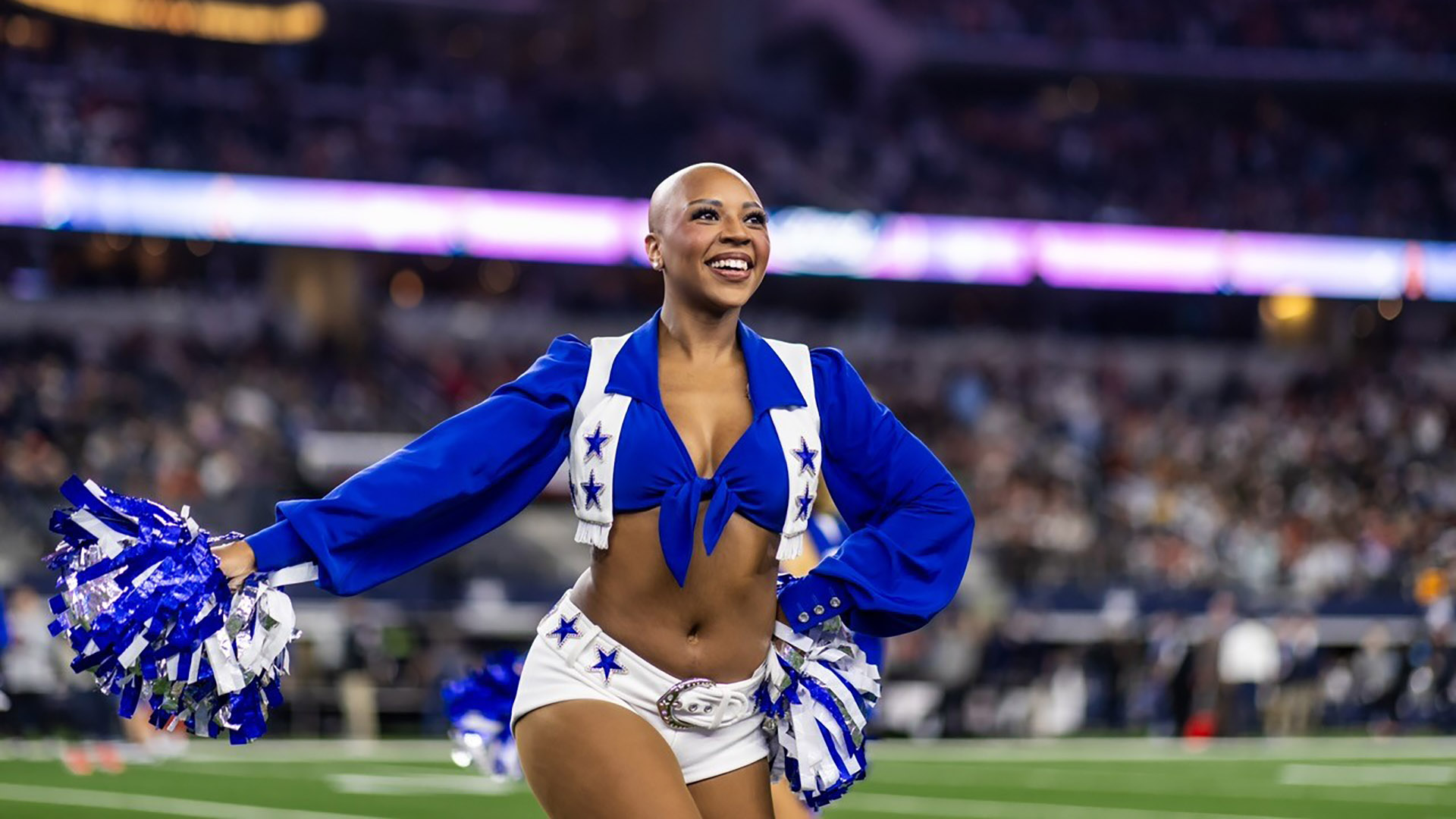
Waddell is a Trailblazer in Ever-Changing Landscape of Athletics
Feb. 3, 2015

Charles Waddell has seen a lot of changes in intercollegiate athletics since his days as a three-sport star at the University of North Carolina more than 40 years ago. Now the Deputy Athletics Director at South Carolina, Waddell recognizes some of the barriers in the past for African-Americans to reach such prominent positions, but he never had any doubt that he would succeed and has been honored as a trailblazer for what he’s done in his professional life.
“I always wanted to achieve,” Waddell said. “I never thought about failing. You set goals and you do what you have to do to get there. I wanted to be a professional athlete, and I had that opportunity. I had some injuries so I didn’t achieve all of the goals I wanted to achieve there. Emotionally,that took a while to get over.”
Waddell came to South Carolina in 2006 with an impressive resume and accolades to match. He could have starred in the 1970s version of the “Bo Knows” commercials after lettering in football, basketball and track and field for the Tar Heels, graduating in 1975. He currently serves as the administrator for football and women’s basketball, and he also oversees South Carolina’s Sports Medicine program and the Strength and Conditioning program.
Waddell received The Patterson Medal as a senior at UNC, which is the highest athletic award at the school. He earned All-ACC honors and All-American honors in football, eventually playing in the NFL with the Tampa Bay Buccaneers, Seattle Seahawks and San Diego Chargers. Despite his success, being a student-athlete in the early 1970s, Waddell witnessed prejudice first hand.
“I was called a few names at a couple of different places,” Waddell said. “One year, because of some injuries, I was the only African-American on the basketball team. Coming out of football season, I wasn’t getting a lot of playing time. At one game, a lot of football players from the opposing team sat behind our bench and said some things they shouldn’t have said. Even on campus, you had a little bit of racism and also some prejudice against athletes. So you had to fight both of those. Some perceived that you weren’t capable of performing like a regular student just because you were an athlete.”
Waddell has seen plenty of changes for African-Americans working in college athletics, and he likes to focus on the individual.
“It’s a different focus now,” Waddell said. “There has to be a good fit with any job. People hire people they are comfortable with. We are products of our environment and upbringing. It’s getting better. It’s much better than it used to be. In time, it will continue to get better. My kids look at things differently than I do. My grandkids are going to look at things totally differently. I don’t think that people are not going to hire me because I’m black. They might hire `Joe’ because they have more of a comfort level with him. I have a good resume, but it may not be a perfect fit for the job I am focused on.”
My goal is to provide student-athletes and coaches the resources and everything they need to be successful and to achieve their goals. Our main focus is to support the student-athletes. I tell them that I work for them, and the main goal is for them to get a degree.
Charles Waddell
Prior to coming to South Carolina he was the Vice Chancellor of Advancement at Fayetteville State University in North Carolina. He also spent nearly a decade as the Director of Marketing and Sponsorships for Richardson Sports in Charlotte, North Carolina, and was responsible for marketing and corporate sponsorships for the Carolina Panthers. He had previously served as Assistant Commissioner for the Big Ten Conference. Now he enjoys working with Athletics Director Ray Tanner and other senior administrators to help every program be successful.
“My goal is to provide student-athletes and coaches the resources and everything they need to be successful and to achieve their goals,” Waddell said. “Our main focus is to support the student-athletes. I tell them that I work for them, and the main goal is for them to get a degree. One of the first things we did since I’ve been here, from a facilities standpoint, was to build the Dodie Academic Enrichment Center. It affects every student-athlete in every program. It solidifies what our responsibility is to them and to their parents.”
His perspective as a former student-athlete can have an impact on his job as he understands the needs of the different programs.
“Football and basketball are perceived as the `haves’ when it comes to college teams,” Waddell said. “But I was also on the track and field team where we hopped on buses for all of our trips. At some opposing schools, we sometimes stayed in dorms instead of hotels.”
With hot button topics such as cost of attendance shaping the landscape of college athletics, Waddell is not surprised that the financial side of things is a growing concern.
“College athletics has always been big business,” Waddell said. “It’s really big business now. The model of fairness and trying to treat all the student-athletes the same is a challenge. Even in high school, revenue is generated by football and basketball.”
When asked if he could go back and change anything in college athletics, Waddell responded, “One of the major differences between intercollegiate sports then and now is the time commitment placed on today’s student-athletes. If I could move things back a bit, I would like to see kids have a little more free time just to be a college student and enjoy life on a college campus. When I was in college, we always enjoyed the time after spring football practice was over. We sort of got a break. We could walk on campus without having to worry about being someplace. You could go to a concert on campus or just go enjoy college life as a regular student for a little bit. These kids today, the only downtime they have, let’s say for football, is in the month of May. I went to summer school, but most didn’t back then. They would go to work so they could have a little spending money during the year. Now many student-athletes attend both summer sessions. It’s constant activity.”
As he works with student-athletes, he is aware of how much more exposure there is for young people today.
“I grew up playing three sports in high school and that was a goal of mine going into college,” Waddell said. “Kids specialize now. They feel that it’s required. AAU wasn’t as big as it is now. I coached AAU basketball for a time. Now coaches start recruiting kids at nine and ten years old, so the kids you get at 18 have already been recruited for 8-10 years by the time they get to college. It’s much more advanced now.”
In January of this year, Waddell received UNC’s Tar Heel Trailblazer Award, which recognizes individuals who paved the way for success in all aspects of the student-athlete experience. While he is somewhat shy about being perceived as a role model, he understands the significance of his position.
“More than twenty years ago, I wrote a letter to the editor at USA Today about role models,” Waddell recalled. “What I said was that everybody doesn’t choose to be a role model, and everybody is not prepared to be a role model. I was talking about how Michael Jordan was a role model to a lot of kids. He valued it, and I think he understood what his responsibility was by being in the limelight at that level. There are also people up at that level who kids look up to all the time, but they’re really not prepared or willing to do the things necessary to be a role model. People are watching, so it’s a responsibility.”
Waddell noted that he has plenty of mentors, but his greatest role model is his father, Frank, who didn’t have a high school education. He was raised on a farm where all the boys had to work every day.
“When I was about 12 years old, my dad went back to school to improve his reading and writing,” Waddell said. “He worked a couple of janitorial jobs, was a deacon in the church, and he was well-respected. This was prior to integration, so it was to his credit that my brother and I felt like we were being raised in a middle-class household.”
Waddell thoroughly enjoys getting up and coming to the office every day at South Carolina because of the people with whom he works and the student-athletes he serves. That’s not to say he won’t have his eyes open if the right opportunity came knocking.
“I wanted to be an athletics director,” Wadded said. “I haven’t achieved that yet, but my time’s not over yet. I’m enjoying the ride – where I have been, and where I am currently. I could have been an A.D. somewhere if I wanted to be. I would have had to take some different steps, maybe at a smaller school and work the process, but I still like the path that I’ve taken.”












